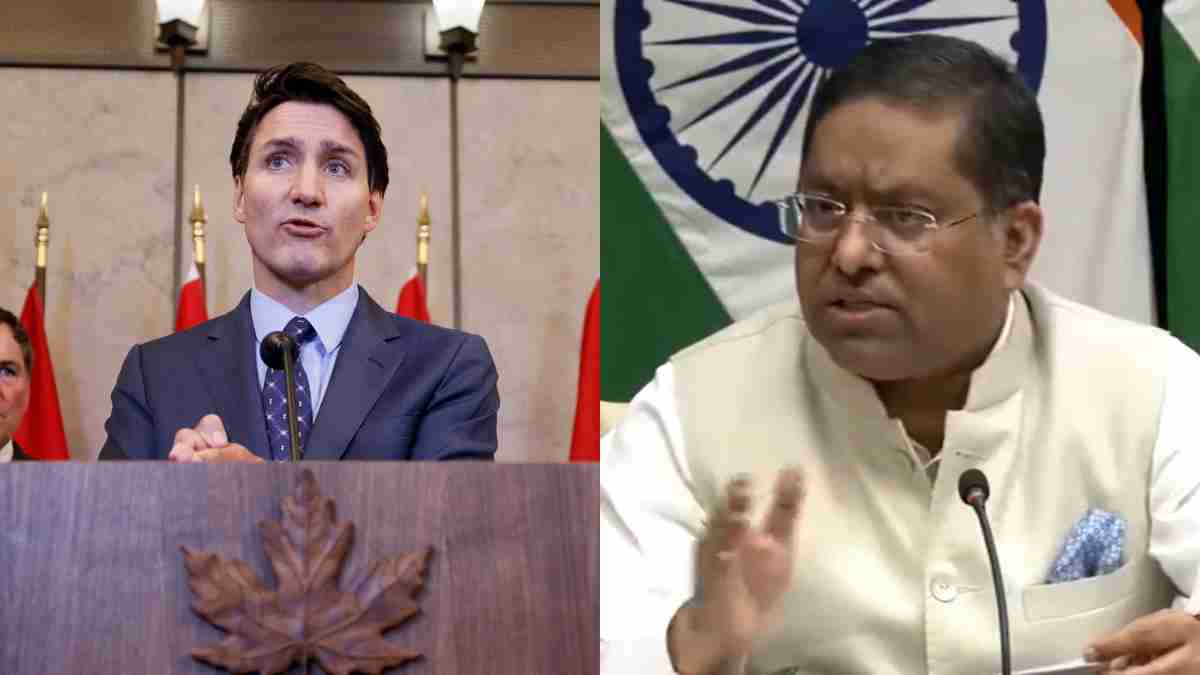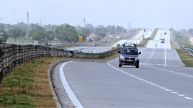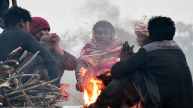India’s Ministry of External Affairs (MEA) spokesperson Randhir Jaiswal disclosed on Thursday that 26 extradition requests, along with numerous provisional arrest requests for criminals, have been pending with Canada for more than a decade. This revelation comes amid the ongoing diplomatic row between the two nations, following allegations surrounding the Lawrence Bishnoi gang and the killing of Khalistani terrorist Hardeep Singh Nijjar.
#WATCH | MEA spokesperson Randhir Jaiswal says, " There are 26 extradition requests pending with Canadian side, these are over the last decade or more, along with that there are several provisional arrest requests which are also pending with Canadian side of certain… pic.twitter.com/WQnLsj2DoZ
---Advertisement---— ANI (@ANI) October 17, 2024
The Ministry of External Affairs (MEA) also stated that it had previously sought the extradition of members of the Lawrence Bishnoi gang from Canada. MEA spokesperson Randhir Jaiswal confirmed the move during a press briefing on Thursday, highlighting that Canada had yet to respond to these requests.
Extradition Requests and Names Mentioned
India’s MEA had made several requests for the extradition of members of the Bishnoi gang, including individuals such as Gurjit Singh, Gurjinder Singh, Arshdeep Singh Gill, Lakhbir Singh Landa, and Gurpreet Singh. Jaiswal emphasized that Canada had been informed about the Lawrence Bishnoi gang and its operations, with formal requests for provisional arrest and extradition made both years ago and more recently. However, there has been no response from the Canadian side.
Also Read: Two Bahraich Violence Suspects Shot In Encounter While Trying To Flee To Nepal
No Response on Hardeep Singh Nijjar’s Killing
The MEA also reiterated that Canada had not shared any evidence related to the killing of Khalistani terrorist Hardeep Singh Nijjar. Since September 2023, the Canadian government has not provided any information to India on the matter, despite India’s clear and repeated requests.
Canada’s Defense of ‘Freedom of Speech’
The Indian government has expressed concerns that Canada often uses the argument of ‘freedom of speech’ when defending anti-India and separatist elements, particularly in relation to the actions of groups like the Lawrence Bishnoi gang.
Trudeau’s Allegations
The statement from India came a day after Canadian Prime Minister Justin Trudeau named Lawrence Bishnoi in connection with the murder of Nijjar, a claim that had previously been made by the Royal Canadian Mounted Police (RCMP). Trudeau alleged that Indian diplomats were involved in gathering information on Canadians and passing it to the Bishnoi gang. He further claimed that Canadian agencies had attempted to collaborate with India on the matter before going public with the allegations.
While Trudeau made serious allegations, he also admitted during his testimony that the Canadian government had provided “intelligence” but no concrete “proof” to India regarding Nijjar’s death, which took place on Canadian soil in September 2023. This admission has further complicated the situation, with India demanding clear evidence to support the allegations.
Diplomatic Expulsions and Retaliation
The diplomatic dispute reached a new low earlier this week when Canada named top Indian diplomats in Ottawa as “persons of interest” in its investigation into Nijjar’s killing. India strongly rejected this stance, and in response, recalled six senior diplomats, including High Commissioner Sanjay Kumar Verma, from Canada.
In a tit-for-tat escalation, Canada expelled six Indian diplomats, prompting India to mirror the action. These developments mark a significant downturn in the already strained relations between the two countries.
Also Read: Notable Rulings By Justice Sanjeev Khanna Who Is Set to Become The Next Chief Justice













